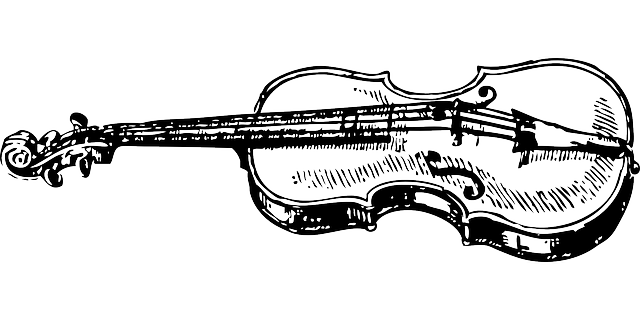الحصار الآشوري للقدس
| حصار القدس | |||||||
|---|---|---|---|---|---|---|---|
| جزء من حملة سناحريب في يهودا | |||||||
|
Hezekiah's Wall | |||||||
| |||||||
| الخصوم | |||||||
| الامبراطورية الآشورية الحديثة | مملكة يهودا | ||||||
| القادة والزعماء | |||||||
|
Sennacherib's Rabshakeh Sennacherib's Rabsaris Sennacherib's Tartan |
King Hizkiyahu of Judah Eliakim ben Hilkiyahu Yoah ben Asaf Shebna |
||||||
| القوات | |||||||
| غير معروفة | غير معروفة | ||||||
| الخسائر | |||||||
|
غير معروفة
|
غير معروفة | ||||||
في حوالي 701 ق.م.، هاجم سناحريب، ملك آشور، المدن المحصنة في يهودا، وضرب حصاراً على القدس، إلا أنه فشل في الاستيلاء عليها (وهي المدينة الوحيدة المذكور أنها محاصرة في نصب سناحريب، ولم يُذكر أنه تم الاستيلاء عليها).
خلفية
في 721 ق.م.، استولى الجيش الآشوري على عاصمة بني إسرائيل في السامرة and carried away the citizens of the Kingdom of Israel (Samaria) into captivity. The virtual destruction of Israel left the southern kingdom, Judah, to fend for itself among warring Near Eastern kingdoms. At the time of Samaria's fall, there existed two kings in Judah — Ahaz and his son Hezekiah — who ruled as co-regents. After the fall of the Northern Kingdom, the kings of Judah tried to extend their influence and protection to those inhabitants who had not been exiled. They also sought to extend their authority northward into areas previously controlled by the Kingdom of Israel.The latter part of the reign of Ahaz, and most of that of Hezekiah were periods of stability during which Judah was able to consolidate both politically and economically. Although Judah was a vassal of Assyria during this time and paid an annual tribute to the powerful empire, it was the most important state between Assyria and Egypt.
In 715 BCE, following the death of Ahaz, Hezekiah became the sole regent of Judah and initiated widespread religious changes, including the breaking of religious idols. He re-captured Philistine-occupied lands in the Negev desert, formed alliances with Ashkelon and Egypt, and made a stand against Assyria by refusing to pay tribute. In response, Sennacherib attacked Judah, laying siege to Jerusalem.
الحصار
Sources from both sides claimed victory, the Judahites (or Biblical author(s)) in the Tanakh, and Sennacherib in his prism. Sennacherib claimed the siege and capture of many Judaean cities, but only the siege—not capture—of Jerusalem.
الرواية العبرية
The story of the Assyrian siege is told in the Hebrew Bible books of Isaiah, Chronicles and Second Kings. As the Assyrians began their invasion, Hezekiah began preparations to protect Jerusalem. In an effort to deprive the Assyrians of water, springs outside the city were blocked. Workers then dug a 533-meter tunnel to the Spring of Gihon, providing the city with fresh water. Additional siege preparations included fortification of the existing walls, construction of towers, and the erection of a new, reinforcing wall. Hezekiah gathered the citizens in the square and encouraged them by reminding them that the Assyrians possessed only "an arm of flesh", but the Judeans had the protection of Yahweh.
According to Second Kings 18, while Sennacherib was besieging Lachish, he received a message from Hezekiah offering to pay tribute in exchange for Assyrian withdrawal. According to the Hebrew Bible, Hezekiah paid three hundred talents of silver and thirty talents of gold to Assyria — a price so heavy that he was forced to empty the temple and royal treasury of silver and strip the gold from the doorposts of Solomon's temple. Nevertheless, Sennacherib marched on Jerusalem with a large army. When the Assyrian force arrived, its field commander Rabshakeh brought a message from Sennacherib himself. In an attempt to demoralize the Judeans, the field commander announced to the people on the city walls that Hezekiah was deceiving them, and Yahweh could not deliver Jerusalem from the king of Assyria. He listed the gods of the people thus far swept away by Sennacherib then asked, "Who of all the gods of these countries has been able to save his land from me?"
During the siege, Hezekiah clad himself in sackcloth out of anguish from the psychological warfare that the Assyrians were waging. The prophet Isaiah took an active part in the political life of Judah. When Jerusalem was threatened, he assured Hezekiah that the city would be delivered and Sennacherib would fall. The Hebrew Bible states that during the night, an angel of YHWH brought death to 185,000 Assyrians troops. Hezekiah had shut up all water outside the city so thirst and the fatigue of a long and tiring campaign possibly could have forced the Assyrians to retreat. It is also a possibility that a disease spread throughout the camp and killed a large number of Sennacherib's men. When Sennacherib saw the destruction wreaked on his army, he withdrew to Nineveh. Jerusalem was spared destruction.
The Hebrew Bible's suggestion that Jerusalem was victorious rather than defeated, is corroborated by the Jewish historian Josephus. He quotes Berossus, a well-known Babylonian historian, that a pestilence broke out in the army camp. According to Herodotus, though, field mice chewed at the leather of their weapons and rendered them useless. It is more likely that the mice described by Herodotus were the cause of the pestilence described by Berossus. Nevertheless, as all of these are expansions on the Hebrew Bible's account, adding Midrash, none are independent witnesses. In any case, most scholars are in agreement that Sennacherib suffered a humiliating defeat while besieging Jerusalem, and that he went back to Nineveh, never to return. "Like Xerxes in Greece, Sennacherib never recovered from the shock of the disaster in Judah. He made no more expeditions against either the Southern Levant or Egypt."
الرواية الآشورية
Sennacherib's Prism, which details the events of Sennacherib's campaign against Judah, was discovered in the ruins of Nineveh in 1830, and is now stored at the Oriental Institute in Chicago, Illinois. The account dates from about 690 BCE. The text of the prism boasts how Sennacherib destroyed forty-six of Judah's cities, and trapped Hezekiah in Jerusalem "like a caged bird." The text goes on to describe how the "terrifying splendor" of the Assyrian army caused the Arabs and mercenaries reinforcing the city to desert. It adds that the Assyrian king returned to Assyria where he later received a large tribute from Judah. This description inevitably varies somewhat from the Jewish version in the Tanakh. The massive Assyrian casualties mentioned in the Tanakh are not mentioned in the Assyrian version, but Assyrian government records tend to commonly take the form of propaganda claiming their own invincibility, with the result that they rarely mention their own defeats or heavy casualties.
The biblical account is undermined by historical evidence. After he besieged Jerusalem, Sennacherib was able to give the surrounding towns to Assyrian vassal rulers in Ekron, Gaza and Ashdod. His army was still in existence when he conducted campaigns in 702 BCE and from 699 BCE until 697 BCE, when he made several campaigns in the mountains east of Assyria, on one of which he received tribute from the Medes. In 696 BCE and 695 BCE, he sent expeditions into Anatolia, where several vassals had rebelled following the death of Sargon. Around 690 BCE, he campaigned in the northern Arabian deserts, conquering Dumat al-Jandal, where the queen of the Arabs had taken refuge.
When Marduk-apla-iddina continued his rebellion with the help of Elam, in 694 Sennacherib took a fleet of Phoenician ships down the Tigris River to destroy the Elamite base on the shore of the Persian Gulf. While he was doing this the Elamites captured Ashur-nadin-shumi and put Nergal-ushezib, the son of Marduk-apla-iddina, on the throne of Babylon. Nergal-ushezib was captured in 693 BCE and taken to Nineveh, and Sennacherib attacked Elam again. The Elamite king fled to the mountains and Sennacherib plundered his kingdom, but when he withdrew the Elamites returned to Babylon and put another rebel leader, Mushezib-Marduk, on the Babylonian throne. Babylon eventually fell to the Assyrians in 689 BCE after a lengthy siege.
نظريات أخرى
In What If?, a collection of essays on counterfactual history, historian Willian H. McNeill speculates that the accounts of mass death among the Assyrian army in the Tanakh might be explained by an outbreak of cholera (or other water-borne diseases) due to the springs beyond the city walls having been blocked, thus depriving the besieging force of a safe water supply. In McNeill's speculative essay, the Assyrians were forced to withdraw by disease, an event which in McNeill's opinion served to support Judaism's then-new monotheistic tradition.
In addition, McNeill reasons that the Assyrian siege of Jerusalem holds special historical significance due to the newness (at the time) of the monotheistic tradition in Judaism. McNeill argues that the apparent defeat of Sennacherib by YHWH supported the idea of monotheism in an age when a conquered people typically adopted the god or gods of their conquerors, as their own had failed to protect them. The extraordinary defeat of Sennacherib which McNeill suggests, by disease which was as yet not understood, would have proven YHWH superior to the gods of the most powerful nation then known to the Jews, Assyria. McNeill concludes that if Sennacherib had taken the city, the Jews may have adopted polytheism, and consequently, the Abrahamic religions would not exist.
Henry T. Aubin writes in The Rescue of Jerusalem: The Alliance Between Hebrews and Africans in 701 B.C. that the Assyrian army was routed by an Egyptian army under Kushite (Nubian) command.
نهاية سناحريب
The prophecy of Isaiah did not come to pass immediately, but did eventually intersect with Sennacherib. In 681 BCE, while worshiping in the temple of Nisroch, the king of Assyria was killed by his own son. He had ruled Assyria for twenty-four years.
في الثقافة الشعبية
An 1813 poem by Lord Byron, The Destruction of Sennacherib, commemorates Sennacherib's campaign in Judea from the Hebrew point of view. Written in anapestic tetrameter, the poem was popular in school recitations.
المصادر القديمة
- سفر الملوك
- سفر إشعيا
- سفر أخبار الأيام
- منشور سناحريب
- آثار اليهود، تيتوس فلاڤيوس يوسفوس
انظر أيضاً
- الهيكل الثاني
- معبد هيرود
- حصار القدس (70)
- تدمير القدس
- الحروب الرومانية اليهودية
- الحائط الغربي
الهامش
- ^ , Harvard University Press, 1976 ISBN 9780674397316
- ^ , 2nd ed. (Princeton, New Jersey: Princeton University Press, 1955), 287ff.
- ^ Plants, Luke. "The Assyrian Attack on Jerusalem", Cornell University
- ^ Josephus, Antiquities, x.21
- ^ Sayce, Archibald Henry. The Ancient Empires of the East. Macmillan, 1884, p. 134.
- ^ Laato, Antti. "Assyrian Propaganda and the Falsification of History in the Royal Inscriptions of Sennacherib." Vetus Testamentum XLV (1995): 198-226. JSTOR. 15 Oct. 2007
- ^ Grayson 1991, p. 111-113.
- ^ Leick 2009, p. 156.
Coordinates:
















